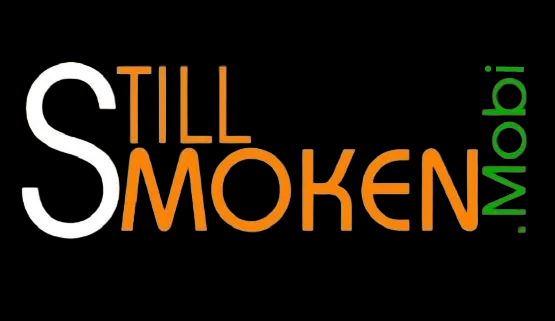When Joanne Wilson decided to launch Gotham, her flagship cannabis dispensary in New York City, it wasn’t just another business move. It was the culmination of decades of experience in retail, investing, philanthropy, and culture, and a bold attempt to rewrite the narrative of cannabis in America’s most complicated market.
“I am the founder and CEO of Gotham,” Wilson told me. “And that is one section of my life.”
Sections, indeed. Wilson has been many things: a retail buyer out of college, a media entrepreneur in the early days of New York tech, a prolific angel investor with more than 150 companies backed, and the organizer of women’s entrepreneurship festivals that changed the city’s startup landscape. Her through-line has always been culture, community, and an unshakable instinct for what’s next. Cannabis, she says, was the natural next chapter.
From Angel Investor to Cannabis Entrepreneur
Wilson’s résumé speaks for itself. After investing early in media companies like Eater and Curbed, she became known as the Gotham Gal, a sharp-eyed backer of women, Black, and brown founders. “My mission was to really only invest in women and Black and brown founders,” she explained. “Not that I don’t have a few white men in there, but that was my focus.”
But after 150 investments, multiple boards, and a major conference series, burnout set in. She began thinking about what came next. A call from a friend changed everything.
“They asked me, do you know what’s going on in New York?” Wilson recalled. “At that point, I was thinking, yeah, maybe I’ll open a store. My original career was in retail. I love the immediate understanding of how your business is on a day-to-day basis. I love the interaction with people that work in the stores, the people that come into the stores. I think retail is just great, even though it’s a difficult business.”
So she jumped in, headfirst. “Anything in my career, I’ve never really flushed it out. I just sort of dive in first and then figure out how to get to the top,” she said. “And nothing could be more new than the cannabis industry.”
Redefining the Cannabis Store
For Wilson, Gotham was never going to look like the typical dispensary. She’d traveled across California, visiting shops, unimpressed by the sameness. “Do they have to look like this?” she asked herself. “Why can’t they be for creatures of culture?”
Instead, she looked to global design icons, Colette in Paris, Dover Street Market, and 10 Corso Como in Milan. “All of those stores, you go in and you have an experience,” she said. “One person might be trying on shirts, another buying a piece of art, another spraying cologne, another grabbing a gift for dinner. Why can’t cannabis be like that?”
At Gotham, it is. The store features a curated gallery supporting emerging artists, events like slam poetry nights and collaborative art projects, and a private label line that reflects the brand’s curated aesthetic. Customers may leave with a pre-roll, a candle, or a fashion accessory. Some don’t buy cannabis at all. “We sell a lot of fragrance and candles,” Wilson said. “We have some customers that come in and they don’t even buy cannabis, they just buy merchandise. It’s such a different retail environment.”
Culture, Community, and Frustration
If Gotham is a beacon of culture, it also exists inside one of the most chaotic regulatory landscapes in the country. Wilson doesn’t mince words about her frustration with New York State’s rollout.
“The biggest frustration is the absolute government incompetence,” she said. “They wanted to put a social slant on it, but the way they did it is the exact opposite. What they have done is create systemic racism all over again. I find it really reprehensible.”
For Wilson, the solution is simple: real jobs, with real benefits. “The only way to change people’s trajectory is to give them a good job with good pay, insurance they don’t have to pay into, an IRA, and the opportunity for upward mobility. It’s pretty simple stuff.”
She’s also outspoken about enforcement against illicit operators. “If New York really got rid of every single illegal store, including underground delivery businesses, how much tax revenue would come back to the state?” she asked. “Not only would it change the trajectory of dispensaries and farms, it could fill the hole in the $4 billion gap in New York City’s budget.”
A Lifelong Relationship with Cannabis
Wilson’s personal history with cannabis stretches back decades. “I basically started getting stoned in eighth grade,” she said, laughing. “I remember being at a party and thinking, Why is this illegal? It made no sense. Even then, I knew it was going to change.”
She kept smoking daily through high school, “probably self-medicating,” she admits, and remained a regular consumer until raising her kids made access less convenient. Today, she still prefers a joint, though she enjoys gummies too. “I think everybody should get stoned,” she said. “It changes your attitude, gives you an adjustment in terms of taking it down a notch. And so, yeah, I love getting stoned.”
Building Gotham’s Team and Inventory
Launching Gotham meant hiring under pressure. “After a year of talking to multiple people for certain jobs and never pulling the trigger because I didn’t have the license, suddenly someone says, You’re going to get your license in four weeks. And I thought, holy sh*t, I have to hire people now,” Wilson recalled.
Her longtime collaborator, Alexandra O’Daly, with her for 15 years, became Gotham’s number two. Together, they’ve built a strong executive team and a diverse staff. “It’s a great community and a really great executive team,” Wilson said.
Inventory is just as carefully curated. “From the cannabis perspective, Mary is our buyer and she keeps a very tight ship,” she explained. “One thing that is really important to the Gotham community is diversity. We’re always looking for BIPOC brands, women-led brands, and different types of brands in line with our aesthetic.”
The Gotham Consumer
So who shops in Gotham? “Any person in New York who wants to have their finger on the pulse of culture,” Wilson said. That might mean a 21-year-old FIT student or a 45-year-old music executive. “Everybody should have that high-end hospitality experience when they come into a store,” she added.
And while she predicted pre-rolls would dominate, the numbers have evened out across flower, joints, and vapes. “There’s nothing that’s so tilted out of the box,” she said. “What’s interesting is people are always looking to try something new. Some customers return several times a week.”
Fashion, Art, and the Next Wave
Wilson has long been plugged into the fashion world, and Gotham reflects that. The store carries designers like KHAITE and Grace Ling, alongside Japanese streetwear staples such as Porter. At one runway show, she recalled, “their models were smoking on the runway. We just got written up in Women’s Wear Daily, and when we showed up backstage, all the models were screaming, ‘Oh my god, Gotham is here.’”
It’s all part of what she sees as Gotham’s mission: to be a hub where cannabis intersects with art, design, and community. “We try to create a real community internally as well as externally,” she said.
Hard Truths and Advice for Entrepreneurs
Despite Gotham’s success, Wilson doesn’t romanticize the business. “This is the hardest business I have ever seen in my life,” she admitted. “Don’t open a dispensary and take anyone’s money. It’s so difficult to operate, with so many layers.”
Her advice to young entrepreneurs: start small, get experience, and don’t rush. “Work for some of the dispensaries, work for some of the brands, get your feet on the street, and see what it’s all about. Decide which area you want to be in. This industry is just starting, and we’ll see massive change in the next five to ten years.”
A Gotham Future
Wilson still imagines an ideal world where cannabis retail in New York looks more like Paris: “You could have a cup of coffee, come back at night for a martini, smoke a joint, and listen to a book reading. All these cultural touch points are so important, particularly in this city.”
Whether or not the laws catch up, Gotham is already proving that cannabis retail can be more than transactional. It can be cultural. It can be stylish. It can be a community.
Or as Wilson put it, “Retail will never go out, ever. People want engagement; they want places that make them feel good. And that’s what Gotham is about.”
Photo courtesy of Joanne Wilson












